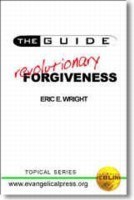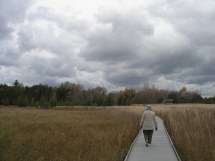Eric E. Wright's Blog, page 43
October 10, 2012
The Restless Sea
The ocean is never still. Its tides rise and fall, its breakers crest and dissipate, and its waves roll on and on until they crash against a rocky shore or roll up on a sandy beach. Its waters collect and propel unto the world’s beaches all the flotsam and jetsam of the ocean world: broken shells, shattered boats, bottles, broken plastic spoons, splintered trees and cast-off Styrofoam. The more agitated the ocean becomes, the more it stirs up the whole mix of broken shells and mud that in calmer times settles to the ocean floor. After storms, shorelines are littered with mud and debris.
broken shells and mud that in calmer times settles to the ocean floor. After storms, shorelines are littered with mud and debris.
How appropriate that the prophet used this image to describe the condition of men and women who jettison moral standards in their struggle to fulfill their desires. “‘The wicked are like the tossing sea, which cannot rest, whose waves cast up mire and mud. There is no peace,’ says my God. ‘for the wicked’”(Isaiah 57:20,21).
We cannot expect a tranquil mind if our lives are a graveyard of broken promises, shattered morals, and shady practices. Instead, nefarious schemes will occupy our minds. Thoughts of past dealings with others will provoke bitterness, anger and thoughts of revenge. Unless we have denied the voice of our consciences long enough to dull their injured cries, we will be fretful, restless, and unhappy.
God has given everyone a conscience imprinted with a set of moral principles. But the more we listen to the siren song of our culture’s ‘new morality,’ the more our innate sense of right and wrong will be blunted and distorted. The result? Restlessness. Inability to find peace of heart.
 Paul writes, “My conscience is clear” (1 Cor. 4:4). Can you and I say that? If not, the only remedy is to bow to Jesus Christ, confessing our moral failures, and asking him to forgive us our sins and bring peace of heart. Jesus promised, “Peace I leave with you; my peace I give you. I do not give to you as the world gives. Do not let your hearts be troubled and do not be afraid”(John 14:27).
Paul writes, “My conscience is clear” (1 Cor. 4:4). Can you and I say that? If not, the only remedy is to bow to Jesus Christ, confessing our moral failures, and asking him to forgive us our sins and bring peace of heart. Jesus promised, “Peace I leave with you; my peace I give you. I do not give to you as the world gives. Do not let your hearts be troubled and do not be afraid”(John 14:27).
When we confess our moral failures to Jesus Christ, He will forgive us and soothe and calm our hearts.


October 1, 2012
Contentment Through Getting Rid of the “If-Onlys”
 For the past few years, morning glories have sprouted spontaneously below our deck. Nothing except outright drought keeps them from twining around anything that comes in their path. Every morning we are regaled with a new burst of blue flowers turned toward the sun.
For the past few years, morning glories have sprouted spontaneously below our deck. Nothing except outright drought keeps them from twining around anything that comes in their path. Every morning we are regaled with a new burst of blue flowers turned toward the sun.
I doubt if morning glories have an itch to grow somewhere new and exotic. Unlike them, an itch to be somewhere else resides in many us. To travel to a new country. To live in a new house. To find a better job or a better church. To climb Mount Kilimanjaro. To hike the Pacific trail. To take the train across Canada or ride a barge on the Danube.
There is nothing wrong with wanting to travel, wanting to get ahead in one’s business, or wanting to grow as a Christian. But sometimes a neurotic discontent with our circumstances haunts us.
 Some of us seem habitually unhappy. We moan: if only I’d taken that other job, if only I didn’t have arthritis, if only I had more income, if only I had better friends, if only I lived where there is no winter, if only I’d grown up in a different family, if only I hadn’t had that accident. The “if onlys” destroy our ability to enjoy life. The “if onlys” stunt our growth in grace. They curdle our temperaments, driving people away who might become our friends.
Some of us seem habitually unhappy. We moan: if only I’d taken that other job, if only I didn’t have arthritis, if only I had more income, if only I had better friends, if only I lived where there is no winter, if only I’d grown up in a different family, if only I hadn’t had that accident. The “if onlys” destroy our ability to enjoy life. The “if onlys” stunt our growth in grace. They curdle our temperaments, driving people away who might become our friends.
Contentment is such an important Christian grace, rooted as it is in confidence that God knows how to run the universe. Although in prison, Paul wrote: “I have learned to be content whatever the circumstances…in need…to have plenty”(Phil. 4;11,12). Learning to be content is not natural—nor easy—but the alternative is a life of miserable discontent. No wonder we need the indwelling Holy Spirit so we can develop godliness because, “Godliness with contentment is great gain”(1 Tim. 6:6). Check out how Jesus addressed these issues in Matthew 6:25-34.


September 27, 2012
The Shoemaker’s Wife
 The Shoemaker’s Wife by Adriana Trigiani
The Shoemaker’s Wife by Adriana Trigiani
My rating: 4 of 5 stars
The Shoemaker’s Daughter, is a lush portrayal of Northern Italy and immigration to Minnesota, the Iron country—between the very early 1900′s and the Second World War. It is a story of two families, of love and loss and immigration and struggles against all odds to succeed. And we learn that the story reflects many experiences and characters from the author’s own life.
Throughout the story we glean wonderful insights into Italian food, family, relationship to the Church, and to the flora and fauna of the Alps. The same can be said when the story moves to New York and Minnesota. Added to this the Italian love of music and art. The Great Caruso makes cameo appearances. And this, an abundance of description, is the only quality that I find over the top.
Ciro and his brother are left by their grieving mother into the care of nuns in a high Italian Alpine village. The father has disappeared after immigrating to America to care for his family…we learn he died in a mining accident. The mother’s grief incapacitates her. In spite of their abandonment by their mother both boys thrive in the warm, caring atmosphere of the nuns until Ciro has to flee to America to escape the anger of their parish priest.
On a memorable occasion he kissed a girl, Enza, after helping her with the burial of her much loved sister. Enza comes from a very close and loving family, but when they lose their house and their livelihood from running a carriage up and down the mountain, Enza and her father must emigrate to America.
She goes to New York whereas he goes to Minnesota to be apprenticed to a shoemaker. How they meet after the passage of years creates a touching love story. 4 of 5.


September 8, 2012
The Failure of Zen
 Zen and Now: on the Trail of Robert Pirsig and the Art of Motorcycle Maintenance by Mark Richardson
Zen and Now: on the Trail of Robert Pirsig and the Art of Motorcycle Maintenance by Mark Richardson
My rating: 3 of 5 stars
Richardson, editor of the Wheels section of the Toronto Star, sets out to follow the route Robert Pirsig and his 11 year old son took from Minneapolis to San Francisco.
Pirsig’s original, “Zen and the Art of motorcyle Maintenance” was a best seller that established a cult following. The book early impressed Richardson, who now, after re-reading it investigates what happened to Pirsig then sets out to retrace his steps on his own old Suzuki dirt bike. This new book was published on the 40th anniversary of Pirsig’s ride.
The narrative is interspersed with what he learned about Pirsig, events from Pirsig’s ride, the sad relationship with his son, Chris, and what happened to him as he followed the strange philosopher.
As a travelogue, I found it interesting. Richardson has an easy style that includes many observations of the people he met and the places he stayed. Richardson also includes many new facts about Pirsig’s family, his mental illness, the failure of his marriage, his strange relationships with the colleges where he taught and the tragic murder of his son, Chris.
Since I have run into anti-social types who lived on the border between genius and madness, the book intrigued me. Truly, Pirsig was a strange man whose Zen-influenced beliefs probably contributed to his wierdness. Looking at his life through the prism of practicality, one would have to say he was a failure in all his relationships. Is that what Zen teaches? Give me the teaching of the Nazarene any time.
In trying to explain the message of Pirsig’s book, Richardson summarizes it in a truism: if a job’s worth doing, it is worth doing well…includng the repair of a motorcylce. Pirsig lamented the deterioration of standards which have been strained by the pressure to mass produce stuff for our throw-away culture. Lack of time to do something well is a huge problem. We see the decline of craftsmanship, of expertise in repairs…gone because new items can be purchased cheap from China.
Pirsig felt that the comes down to “the scientific, which he called the Classical, and the artistic, which he also called the Romantic. These are opposites that we need, the light and the dark, the yin and the yang…we need proper balance.” I would comment that we need a balance between the technological, the work related, the time driven and the artistic, meditative, relaxing side of ourselves/our lives.
So Pirsig’s message is to slow down, “the real cycle you are working on is yourself. Attain peace of mind.”(p. 145) Pirsig continually searched for the right balance, and the enthronement of Quality. That he failed in every area, seems to me to show the failure of Zen and of those who pursue it. But his thoughts do point out the failure also of our western society to achieve balance and peace and relational harmony.
Zen, peace, quality, failure, insanity, travelogue


September 6, 2012
Grit & Character trumps IQ
Kids need grit rather than IQ or self-esteem to succeed. Interesting review of Paul Tough’s book, “How children succeed: Grit, Curiosity and the Hidden Power of Character” in last Saturday’s Globe and Mail from Toronto. Kids need to learn how to manage failure and adversity. IQ is not character. Just what we saw in the background of many convention speeches in US. And hello, duh, the Bible has been saying it for millenia. “We rejoice in in our sufferings, because we know that suffering produces perseverance, perseverance character…” (See Rom. 5:3,4 and other texts.) “Consider it pure joy, my brothers, whenever you face trials of many kinds because you know that the testing of your faith develops perseverance. Perseverance must finish its work so that you may be mature and complete, not lacking anything [in character]” (James 1:2-4).


August 18, 2012
The Failure of Zen
 Zen and Now: on the Trail of Robert Pirsig and the Art of Motorcycle Maintenance by Mark Richardson
Zen and Now: on the Trail of Robert Pirsig and the Art of Motorcycle Maintenance by Mark RichardsonMy rating: 3 of 5 stars
Richardson, editor of the Wheels section of the Toronto Star, sets out to follow the route Robert Pirsig and his 11 year old son took from Minneapolis to San Francisco.
Pirsig's original, "Zen and the Art of motorcyle Maintenance" was a best seller that established a cult following. The book early impressed Richardson, who now, after re-reading it investigates what happened to Pirsig then sets out to retrace his steps on his own old Suzuki dirt bike. This new book was published on the 40th anniversary of Pirsig's ride.
The narrative is interspersed with what he learned about Pirsig, events from Pirsig's ride, the sad relationship with his son, Chris, and what happened to him as he followed the strange philosopher.
As a travelogue, I found it interesting. Richardson has an easy style that includes many observations of the people he met and the places he stayed. Richardson also includes many new facts about Pirsig's family, his mental illness, the failure of his marriage, his strange relationships with the colleges where he taught and the tragic murder of his son, Chris.
Since I have run into anti-social types who lived on the border between genius and madness, the book intrigued me. Truly, Pirsig was a strange man whose Zen-influenced beliefs probably contributed to his wierdness. Looking at his life through the prism of practicality, one would have to say he was a failure in all his relationships. Is that what Zen teaches? Give me the teaching of the Nazarene any time.
In trying to explain the message of Pirsig's book, Richardson summarizes it in a truism: if a job's worth doing, it is worth doing well...includng the repair of a motorcylce. Pirsig lamented the deterioration of standards which have been strained by the pressure to mass produce stuff for our throw-away culture. Lack of time to do something well is a huge problem. We see the decline of craftsmanship, of expertise in repairs...gone because new items can be purchased cheap from China.
Pirsig felt that the comes down to "the scientific, which he called the Classical, and the artistic, which he also called the Romantic. These are opposites that we need, the light and the dark, the yin and the yang...we need proper balance." I would comment that we need a balance between the technological, the work related, the time driven and the artistic, meditative, relaxing side of ourselves/our lives.
So Pirsig's message is to slow down, "the real cycle you are working on is yourself. Attain peace of mind."(p. 145) Pirsig continually searched for the right balance, and the enthronement of Quality. That he failed in every area, seems to me to show the failure of Zen and of those who pursue it. But his thoughts do point out the failure also of our western society to achieve balance and peace and relational harmony.
Zen, peace, quality, failure, insanity, travelogue
View all my reviews
Revolutionary Forgiveness



By Rev Ed Hird
Why is it sometimes so hard for us to forgive others? Forgiveness is often the virtue we all believe in until we have to do it. Sometimes we forgive readily. Other times it is very hard and seems humanly impossible. Eric Wright the author of Revolutionary Forgiveness says it’s as if there is an ‘unforgiveness’ gene spliced into our DNA..
Great thoughts from Ed Hird on my book, Revolutionary Forgiveness!
August 10, 2012
Drought-busting Rain
Drought had held us in thrall for weeks. Then one afternoon thunder rumbled and crashed and reverberated through the hills. Torrents of rain beat on the roof like a drummer sounding out a tattoo. The rhythm of rain rose and fell with the gusts of wind that drove it, sometimes flinging itself almost horizontally across the awakened land. We seemed to be immersed in some primeval concert from the dawn of creation.
Wonderful refreshing rain! In a few minutes the sky poured down more water than I could pum p if I kept the hose for a week. We could almost hear the sigh of relief from trees and corn fields and soybeans and meadow flowers.
p if I kept the hose for a week. We could almost hear the sigh of relief from trees and corn fields and soybeans and meadow flowers.
Sometimes we, or our churches, go through periods of dryness. Pleasure in worship disappears. Joy in Bible study shrivels. Confidence in prayer dries up. We feel desperate for a refreshing sense of God’s presence. We long for the rain of the Spirit to fall.
The question we need to ask ourselves when we feel dead and dry is; am I thirsty for God or complacent?
God speaking through Isaiah promised backsliding Israel, “For I will pour water on the thirsty land, and streams on the dry ground; I will pour out my Spirit on your offspring, and my blessings on your descendants.” (Is. 44:3). (See also Is. 35:1,6.) Revival came to Israel during the time of Ezra and Nehemiah. It has come to the Church at special times throughout history.
We don’t have to wait for a national revival. We can seek it individually. Writing after his astounding descriptions of the suffering servant who “was pierced for our transgressions” Isaiah invites us to come and quench our soul thirst. “Come, all you who are thirsty, come to the waters; and you who have no money, come, buy and eat” (Is. 55:1)! (See also Is. 52:7; 53:5.)
Fulfilling this Old Testament prophecy, Jesus offered the Samaritan woman “living water” which he went on to describe as “a spring of water welling up to eternal life”(John 4:10,14). He further clarified his meaning at the Feast of Tabernacles where “he said in a loud voice to the assembly, ‘If anyone is thirsty, let him come to me and drink. Whoever believes in me as the Scripture has said, streams of living water will flow from within him.’ By this he meant the Spirit”(John 7:37-39).
Clearly, the source of soul-refreshment—the Holy Spirit— dwells within every  born again believer. Unless we have grieved the Holy Spirit by cherishing sin in our hearts, He is eager to revive us and through us others. Revival begins with me and you. Let us lift our faces to heaven and pray earnestly for the abundant rain of the Spirit.
born again believer. Unless we have grieved the Holy Spirit by cherishing sin in our hearts, He is eager to revive us and through us others. Revival begins with me and you. Let us lift our faces to heaven and pray earnestly for the abundant rain of the Spirit.


July 29, 2012
The Strawberry Farmer
The kingdom of heaven is like a strawberry farmer who went out early in the morning to hire workers to pick his fields. At 7:00 he hired three for $10 an hour. Seeing that the strawberries were plentiful he went out at 10:00 and found more workers waiting to be hired. “Go join the others,” he said, “and I’ll pay whatever is right.”
He went out and did the same at 12:00 and at 2:00 pm. Finally at 4:00 pm he went into the town square and found some workers still lounging around. “Why have you been standing here all day long doing nothing,” he said.
“No one has hired us,” they said.
“Go and work in my strawberry fields,” he said, “And I’ll pay you whatever is fair.
At the end of the day, he charged his foreman with paying the workers, beginning with the last ones. The workers who were hired at four in the afternoon received $100. Hearing about this, the ones hired first supposed they would receive much more but when their turn came they were given $100. Looking at the dollar bills in their fist, they began to grumble. “It’s not fair, “they said, “We laboured through the heat of the day and received no more than those who worked only an hour.”
Hearing their grumbling, the farmer asked, “Didn’t you agree to work for $10 an hour?”
“Yes,”, they replied but—
“Take your pay, and go,” the farmer said, “Don’t I have the right to do what I want with my own money? Or are you envious because I am generous?” And so the first shall be last and the last first in the kingdom. (See Matt. 20:1-16)


July 20, 2012
Drought
The grass crunches under my feet as I walk over the lawn. The sound signals drought. Not nearly as bad as in the US mid-west, but we in Southern Ontario are in the midst of a severe shortage of rain. Farmers are hurting. Lawns are dying. Fires are banned in campgrounds.
 In spite of daily dragging the hose from one flowerbed to the next, the daisies and black-eyed susans are wilting. The parched ground quickly gobbles up any water I can deliver. And as the drought lengthens I regret my decision in the spring to beautify the yard with pots of flowers, each of which requires an evening soaking. Along with the flowers, I keep a close eye on my vegetable garden. Nothing must keep me from reaping a bumper crop of tomatoes, beans, and cucumbers. But will my efforts be enough?
In spite of daily dragging the hose from one flowerbed to the next, the daisies and black-eyed susans are wilting. The parched ground quickly gobbles up any water I can deliver. And as the drought lengthens I regret my decision in the spring to beautify the yard with pots of flowers, each of which requires an evening soaking. Along with the flowers, I keep a close eye on my vegetable garden. Nothing must keep me from reaping a bumper crop of tomatoes, beans, and cucumbers. But will my efforts be enough?
Fortunately, we have a well that has never run dry. Springs from higher on the hillside feed the ever-flowing creek at the bottom of our property and continually replenish the well. But surely, there must be a point of no return when the springs will shrink to a minuscule trickle.
Spiritually, many places seem to be experiencing drought. Yet, all those who embrace Jesus as Savior and Lord need have no fear of being parched by a dearth of the Living Water. This was what Jesus offered the Samaritan woman at the well. “If you knew the gift of God and who it is that asks you for a drink, you would have asked him and he would have given you living water…[it] will become in [any recipient] a spring of water welling up to eternal life.” Such a spring quenches our inner soul thirst for forgiveness and acceptance. (See John 4)
On the last day of the Feast of Tabernacles, Jesus stood in the temple and cried; “If anyone is thirsty, let him come to me and drink. Whoever believes in me, as the Scripture has said, streams of living water will flow from within him” (Jn. 7:37,38). How wonderful it is to have that burning thirst within satisfied by the indwelling presence of the Holy Spirit who mediates all the blessings of God.
Jesus was quoting Isaiah, written centuries before. “I will pour  water on the thirsty land, and streams on the dry ground; I will pour out my Spirit on your offspring” (Isaiah 44:3). In the imagery of Isaiah, salvation is like a well from which we draw upon God’s inexhaustible grace. “With joy you will draw water from the wells of salvation” (Isaiah 12:3).
water on the thirsty land, and streams on the dry ground; I will pour out my Spirit on your offspring” (Isaiah 44:3). In the imagery of Isaiah, salvation is like a well from which we draw upon God’s inexhaustible grace. “With joy you will draw water from the wells of salvation” (Isaiah 12:3).
If we have been born again by faith in Jesus Christ, we can draw deeply and daily from that well. And let us all continue to pray for relief from the drought.






